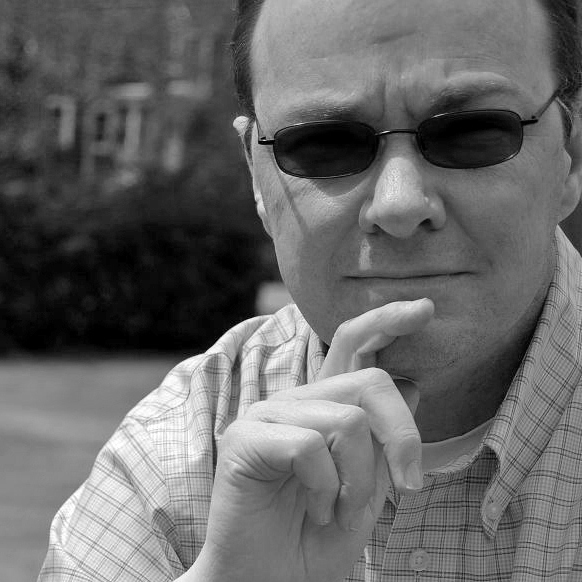Advertisement
Why The Music Business Continues To Stumble Toward Its Demise

The news out of this year’s South by Southwest Music festival was anything but good. As Austin’s hip music-film-and-technology festival neared its halfway point, three people were killed and nearly two dozen injured when an alleged drunk driver plowed into a crowd of pedestrians.
Though paling by that standard, the other bad news involved the festival’s near total takeover by corporate America. The unabashed shilling was so pervasive the two New York Times writers in attendance focused their coverage as much on logos and branding than on reviews of rock, rap or blues. They reported how Lady Gaga prostrated for Doritos, while other big names poured it all out for Apple, Samsung and Pandora. For those who may have downed too many Lone Stars and missed the intent, the main stage (pictured above) was part giant snack-chip vending machine and part six-story billboard. Naturally, the pitching was all synergized with social media, the modern marketer’s dream delivery system.
Modern capitalism’s shell game means bands aren’t getting the support they need; corporations have found a way to get it instead.
Musicians shilling for products is an old practice, and “corporate rock” was an epithet coined decades ago. However, South by Southwest always seemed to me a bastion of the indie aesthetic, with 2,000 bands performing, and only a few of them arena fillers; most are relative unknowns hoping to make a splash.
A splash is a relative thing these days. In an ocean of choices it’s hard to stand out. Money helps. Which explains why there were so many corporate sponsors at SXSW. The festival needs them. Bands need them. Why? Because of you and me. Or people like us, anyway, who stopped years ago paying for music.
I talk to a lot of young people and the ruling sentiment when it comes to content of any kind is “give it up for free or forget about it.” And we can’t simply blame the kids. The ease of downloading pirated content means my grandmother can do it, and the ubiquity of the practice makes it at least feel somehow legal and ethically permissible. Add to this the paradigm shift that has so many of us streaming music instead of buying it and we’ve become a nation of music fans hastening the death of the thing we profess to love. The one thing about a market economy that can’t be denied is that there has to be a market.
When it comes to music, the old system wasn’t perfect, but it worked well enough. Musicians that could attract a significant enough following could earn a living. For many — who could afford to toss TVs out hotel windows and drive Rolls Royces — it was quite a fine living. The system encouraged excesses of all kinds, but it provided a somewhat stable situation based on the tenets of supply and demand.
Then the Internet came along and tossed in a monkey wrench: something for nothing. Then, everything for nothing. Music fans being naturally self-interested, took to freebies like nobody’s business (the fact of $18 CDs didn’t help the industry’s case, I’ll admit). The Recording Industry Association of America claims that since the arrival of Napster in 1999, record sales are down more than 50 percent. In 2009, only 37 percent of music acquired in the U.S. was actually paid for — a number that has likely dropped further in the years since. The association cites a study by the Institute for Policy Innovation that claims the pirating of music costs $12.5 billion in losses to the U.S. economy each year, which in real terms means the shedding of 70,000 jobs and $2 billion in lost wages.
The market has tried to adjust. Apple introduced iTunes, and $.99 cent downloads helped staunch some of the bleeding. Over the last few years, streaming systems that rely on advertising or subscription fees of about $10 a month allow users to access millions of songs without ever having to buy a thing.
The upshot is the widespread perception that music should be free or pulled from the clouds for next to nothing, thus artists who used to count on record sales quickly found themselves in trouble. The ones that could began charging more for their live performances and found sponsors. The artists that didn’t have these outlets worked harder, touring more, hoping to scratch out a living.
There’s still great music out there, some of it 'brought to you by Brand X,' and some of it, to steal a line from Neil Young, 'sponsored by no one.'
All the while, we ripped and streamed to our heart’s content. Even me. In recent years, I’ve taken to streaming music, reducing the dozens of CDs I bought each year to one or two. Where did that money go that I used to spend on recordings? Not to the artists whose music I enjoy, but to my cable and Internet bill, Ticketmaster and Spotify. Modern capitalism’s shell game means bands aren’t getting the support they need; corporations have found a way to get it instead.
Marx believed capitalism would ultimately fail when the shift to mechanism displaced so many workers there would be no one left with enough money to buy the goods produced. In other words, no buyers, no market, ballgame over. His timing was off. The Industrial Revolution didn’t bring his theory of collapse to fruition, but Internet piracy did, and it’s why the music business as we’ve known it continues to stumble toward its demise.
There’s still great music out there, some of it “brought to you by Brand X,” and some of it, to steal a line from Neil Young, “sponsored by no one.” It’s up to us to decide if it’s worth paying for, and ultimately, if making music is going to be a sustainable endeavor for artists of the future.
Related:
